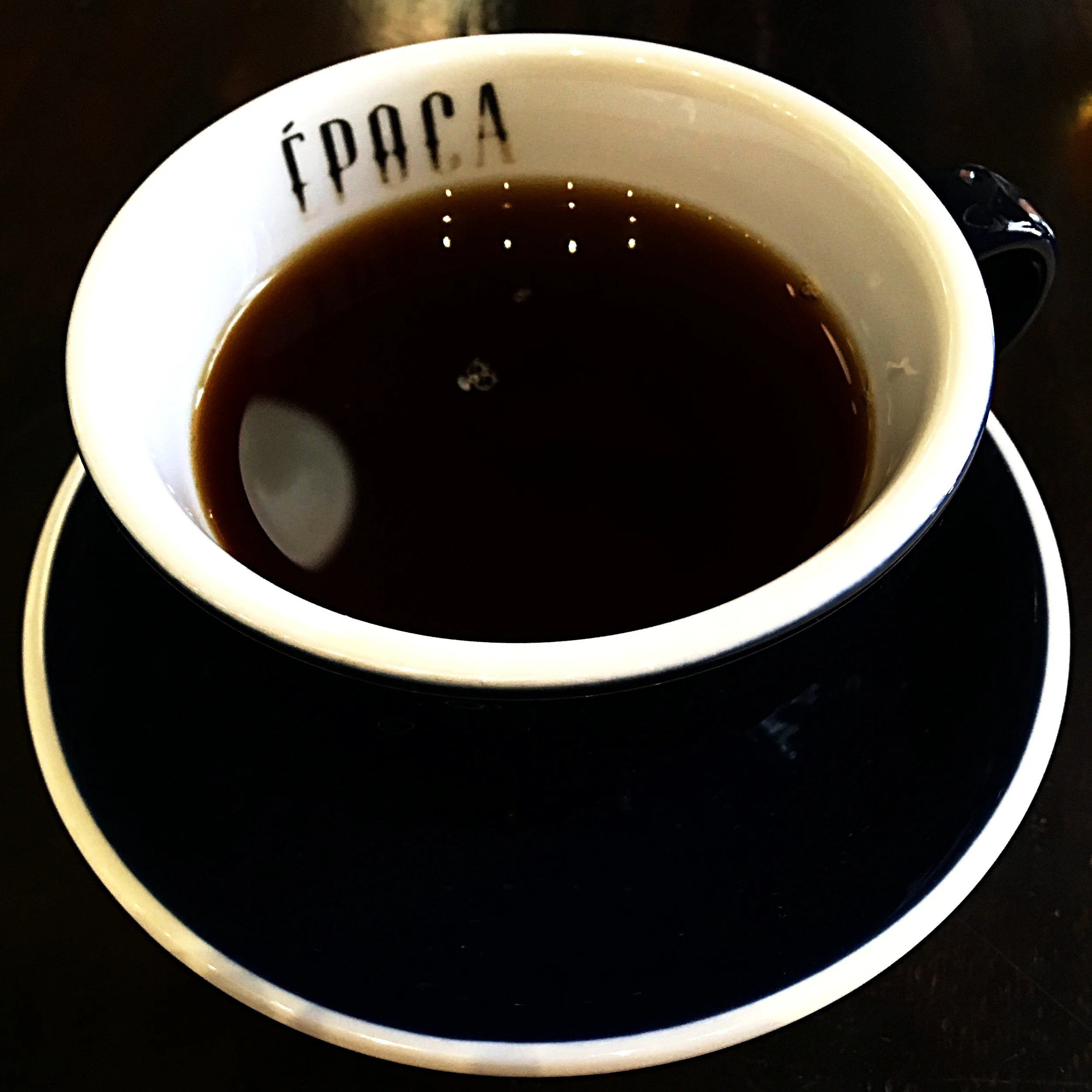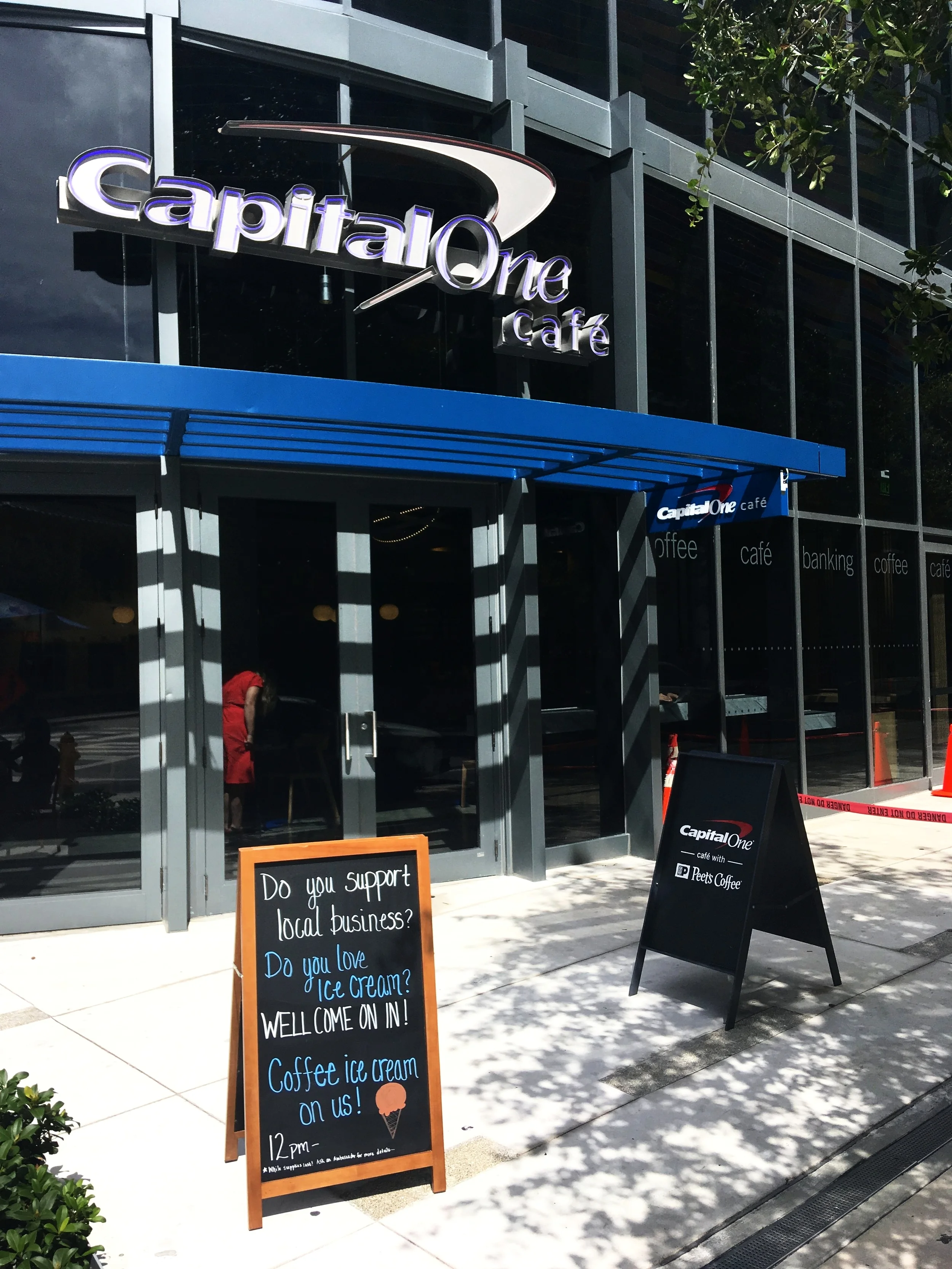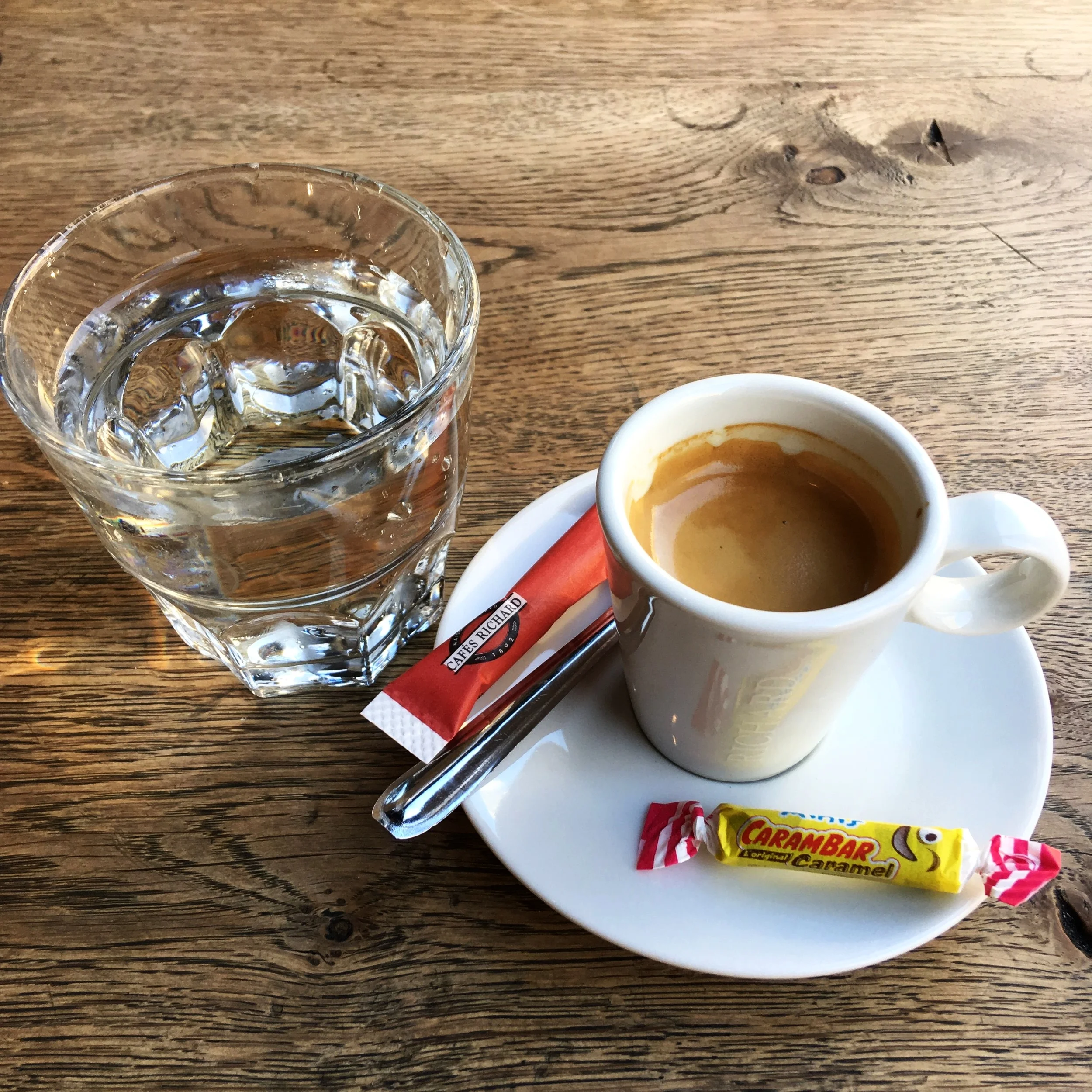Coffee Monster
Coffee Monster
“the counter of a coffee house is the parliament of the people”
“Dear Starbucks, in your attempt to manufacture culture out of fast food coffee you’ve been surprising successful for the most part. The part that’s not covered by the most part sucks”
“Our Cafés are inviting places where you can bank, plan your financial journey, engage with your community, and enjoy Peet’s Coffee®. You don’t have to be a customer.
We are changing the way that people bank, the way people think about finance, the way people feel about money”
As I was drifting in the vertically-stretched-post-stamp-sized neighborhood of Brickell in Miami some months ago I ran into a monster. The creature was inconspicuous at first, hiding in plain sight as an urban chameleon. It had mimicked the shape and colors of its environment, it had almost managed to make itself attractive. Almost. Any experienced urban drifter knows that predators are lurking around, stealthily trying to lure you into a false sense of comfort, making you lust with its lights and glitters, only to get you close enough so that they can infiltrate your brain, use you as a host to find new prays, capture your attention and suck money out of your pockets. In the city jungle there are many such nefarious beasts. So, drifters mistrust the shiny colors and attractive disguises and rely on their intuition to identify danger.
Something was slightly off center with that particular animal. The faintest whisper of a foreboding growl was floating in the thick Florida air. No one seemed to notice. In fact, many seemed to be attracted to it, diving right into its wide, inviting mouth. Yet something about this particular corner, its spacious layout, it’s unnatural brightness, its enormous frames of silver beams and heavy tempered glass betrayed the masquerade.
From the distance, it looked like a cozy local corner café with an enticing terrace of red metal chairs, tables and large blue sun umbrellas. But the building itself, the sheer size of the shop and its location suggested more a large corporate business of some kind. As I carefully got closer, curious, somewhat anxious, the hideous reality of what I was seeing was revealed. It was an aberration, the outcome of a diabolical experiment by some mad scientist, the engineered offspring of two ideas so incompatible that it made Doctors Frankenstein and Jekyll look like Renaissance artists. On one of the mall-sized windows of the shop, about 10 feet tall by 4 feet wide, in between its exoskeleton of aluminum covered steel, “banking” was tattoed in giant lower case letters, followed on the adjacent window by “café”. A bank and a café?
In the past few decades America seems to have discovered the magic of coffee houses. The boom started more or less in the 90s generated by a multitude of converging factors ranging for popular TV shows (Friendsand its Central Perk) to the rise of free wifi which offered an attractive alternative workspace to offices. Yet there are records of the existence of coffee houses dating as early as the XVth century in the Middle East throughout the Muslim world. An ancient Persian tradition (yes coffee lovers, you owe a great deal to Iran and their qahveh-khaneh) it progressively made its way into Europe about two centuries later through the Mediterranean with Persian merchants, and into Eastern Europe with the expansion of the Ottoman Empire. Clearly, the beverage had social-bonding superpowers as the story is roughly the same everywhere, a sort of salon where it is served in which people gather to have conversations, listen to music, play games.
By the end of the XVIIth century, the place of coffee houses in society was to take a radical turn. In Paris, France, where more than 3,000 of them were accounted for, they became the epicenter of the major tectonic shift known as the Enlightenment. More than coffee, music and games, ideasstarted to be exchanged and discussed in cafés. Revolutionary political ideas that placed reason and science at their core, would give birth to major revolutions and modern democracies. French philosophers Voltaire, Rousseau and Diderot often met at Le Procopeone of Paris’ finest that still exists to this day. Later on, Benjamin Franklin and Thomas Jefferson would also frequent the café and exchange their ideas about a new kind of democratic foundation built on freedom right in the heart of one of Europe’s oldest and most absolute monarchy.
In short coffee houses have a long history and a rich tradition. So much more than just a place to grab a good old cup of Joe! If revolutions were born and History was made out of ideas that appeared in cafés then the people who are crazy enough to open one play a much more important role in society than most politicians.
And as liberal democracies are facing yet another wave of assaults lately and its fundamental values that we took for granted, such as free speech and free press, are being threatened the obscurantism of stealth fascist and theocrats, we need more grassroots politics and more spaces for it. In that context the existence of independent cafés implanted deep within local communities is of vital importance.
So, it should be no surprise that it is under attack as well. Not directly by aggressive anti-democratic agendas but by forces even more powerful, forces that greatly contribute to the corruption of free pluralist societies, not out of regressive puritan morals and nefarious convictions, but out of endless hunger for profit. People and places dedicated to fostering good conversations are rebellious by nature but there is profit to be made out of them. They can be bought or monetized. This is the story of Starbucks, cancer of global standardization, slowly attempting to exterminate the extraordinary diverse coffee culture with their format, their synthetic flavors, their patented smell and sound. And now Capital One Café is the latest avatar. It is a catastrophically efficient honey trap, a genius marketing concept, consciously coupling banking and coffee. It shows that the very DNA of the coffee-house, its social function as an incubator of ideas is threatened. And beyond the idea of coffee houses it is the very DNA of a healthy society that is being corroded.
Do we support local businesses? Fuck you Capital One! You are unmasked. So go to cafés that arereally local, go have real conversations and avoid swallowing bank products down with your coffee until the next financial crisis.




